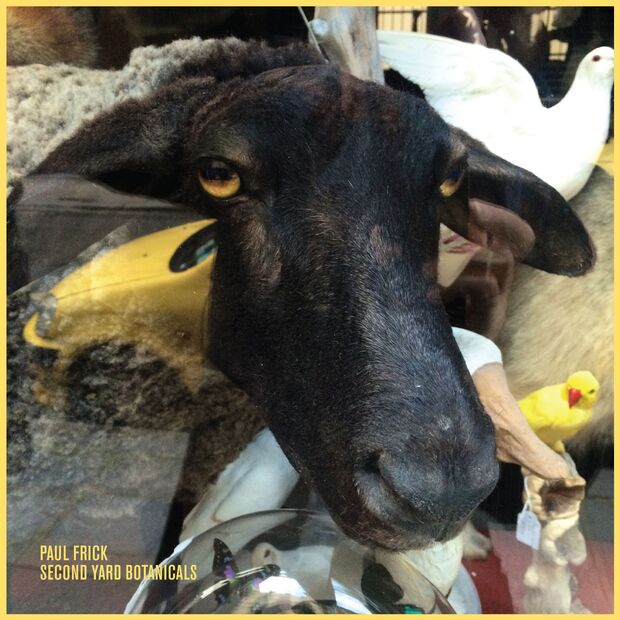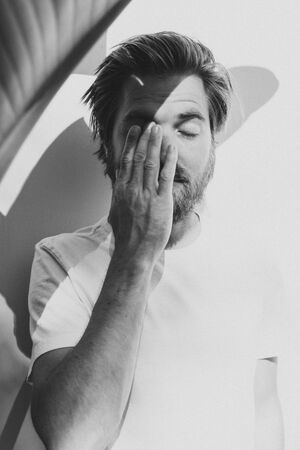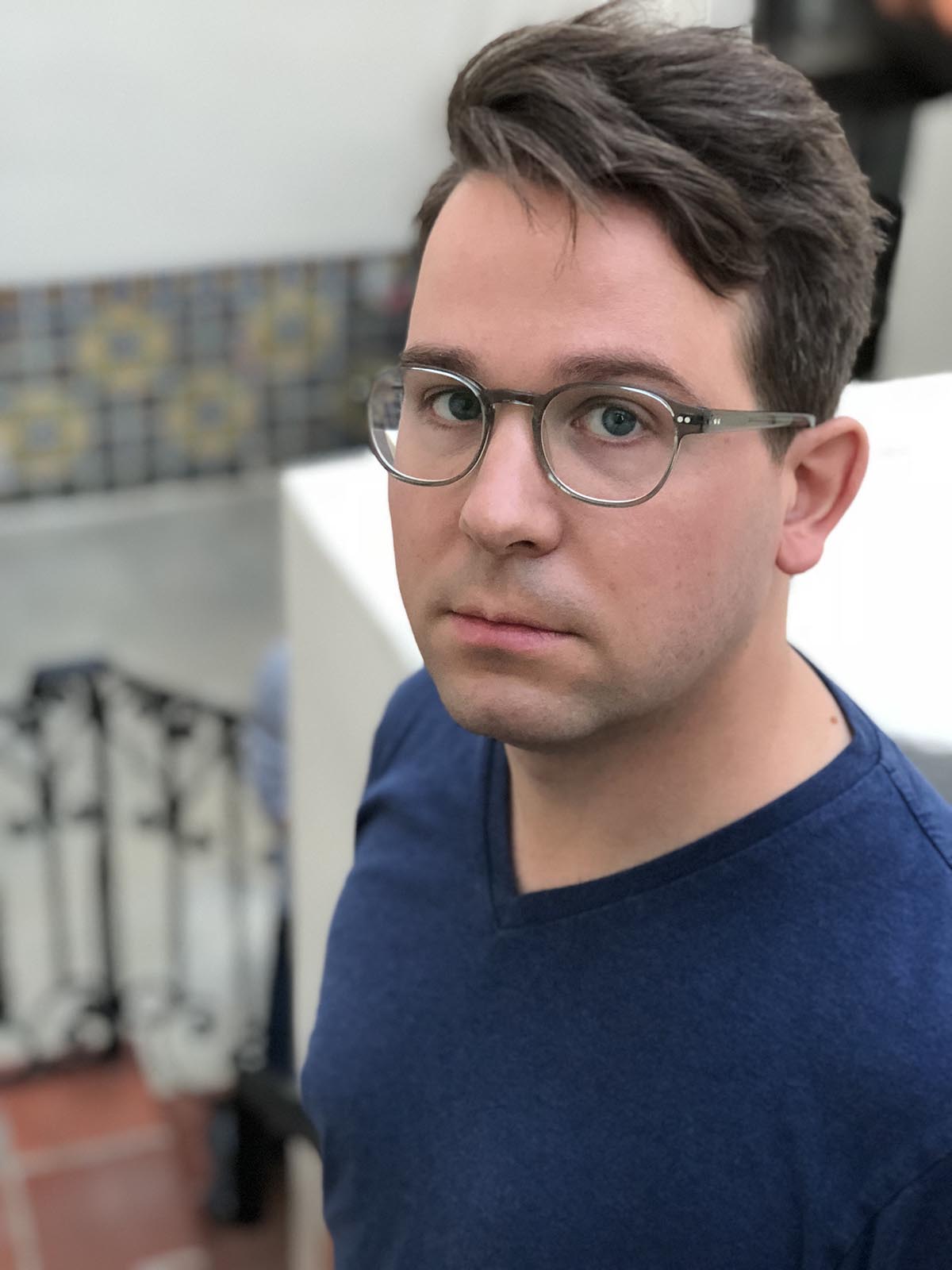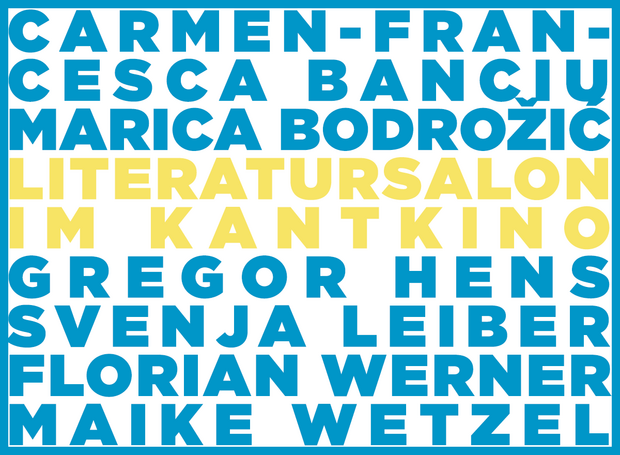Veranstaltungsarchiv VATMH
2018
Salon Sophie Charlotte 2018: Ist Sprache eine Waffe?
Berlin-Brandenburgischen Akademie der Wissenschaften (Jägerstraße 23. 10117 Berlin)

Info
1929 schreibt Kurt Tucholsky in einer seiner berühmten Glossen: „Sprache ist eine Waffe. Haltet sie scharf.“ Aber können Worte wirklich die Welt verändern? Der „Salon Sophie Charlotte 2018“ ist dem Nachdenken über die Wirkung von Sprache, über unsere Sprache als Instrument gewidmet. Sprache verändert sich, Sprachen sterben aus, digitale Sprachassistenten revolutionieren unser Leben. Sprache lässt uns träumen, sie dient der Bewusstwerdung, der Verständigung, wir erschaffen mit ihr Utopien ebenso wie Poesie. Sie zeigt uns Möglichkeiten und Grenzen auf und manchmal ist sie auch eine Waffe.
Rund 100 Sprach-Expert/-innen, Wissenschaftler/-innen und Künstler/-innen, gestalten diesen Abend: die Nobelpreisträgerin Herta Müller ebenso wie der Poetry-Slammer Bas Böttcher. Wir fragen nach „politischen Pöbeleien von Luther bis Trump“, ob Recht verständlich sein muss und wie Tiere kommunizieren. Die Sprache des Koran ist ebenso Thema wie Goethes erotische Sprache oder das radikale Zwiegespräch zwischen Dichter und Computer in der Code Poetry. Es geht um die Sprache der Gene und der Formeln wie um die Sprache der Bilder und der Düfte.
Das Akademiegebäude am Gendarmenmarkt wird an diesem Abend von der 1. bis zur 5. Etage mit künstlerisch-wissenschaftlichen Beiträgen bespielt. Kinder und Jugendliche sind zu Schnupperkursen für Gebärdensprache eingeladen. In Lichtinstallationen der Beuth Hochschule für Technik Berlin wird „Die Schönheit der Sprache“ inszeniert, das „Digitale Wörterbuch“ fordert zum Spiel mit Sprache auf und die Schauspielerin Kathrin Angerer liest Tucholskys „Sprache ist eine Waffe. Haltet sie scharf.“
Die Veranstaltung wird teilweise simultan in Gebärdensprache übersetzt. Ein Dolmetschteam steht Gebärdensprachnutzer/-innen ab 20.45 Uhr zum barrierefreien Besuch anderer Veranstaltungen zur Verfügung. Dieser Service wird im Säulen-Saal koordiniert.
Während der Veranstaltung werden Foto- und Filmaufnahmen gemacht, die potenziell für Zwecke der allgemeinen Öffentlichkeitsarbeit in verschiedenen Medien publiziert werden.
Das komplette Programm finden Sie auf der Website der BBAW.
19.30 Uhr in Konferenzraum 2: Die Dinge in der Schwebe halten – Thomas Manns Sprache der Ironie
Andreas Blödorn (Literaturwissenschaftler, Vizepräsident der Thomas Mann-Gesellschaft, WWU Münster, Gast des Villa Aurora & Thomas Mann House e. V.)
Eine abgründige, bisweilen unverhohlen boshafte, doch in ihren Grundzügen stets lebensfreundlich-humane Ironie gilt als prägnantes Stilmittel des Erzählers Thomas Mann. Ein Blick auf seine Sprache zeigt, wie die ironische Haltung zum Leben und Schreiben Brüche in Biographie und Werk gleichermaßen auszustellen wie zu verkleinern half.
Die Grenzen des Sagbaren
Literaturhaus Berlin (Fasanenstraße 23)

Info
Is the demand for politically correct language an expression of an emancipatory society or of authoritarian rule? "Fair speech alone does not create a fair world. But by using it, we show that we want a fair world at all," writes linguist and blogger Anatol Stefanowitsch in his recent book "A Question of Morality. Why we need politically correct language" (Duden 2018). Others, on the other hand, speak of organized linguistic and intellectual cowardice, which paralyzes practically the entire social field from top to bottom in the political-journalistic space. Do the two positions signify fundamental opposites in our liberal society or is it really something else?

Prof. Dr. Anatol Stefanowitsch (* 1970) grew up in Berlin, Hamburg and Hertfordshire. He studied English, research in second language acquisition and general linguistics in Hamburg and Houston. Since 2012 he is professor for the structure of today's English at the Free University of Berlin. In his research, Stefanovich deals with grammatical constructions and conceptual metaphors. His main focus is Corpus Linguistics. With a focus on loanwords, language policy and language discrimination, he is also active as a science blogger (www.sprachlog.de) and lecturer.
In-store Session: Paul Frick - Second Yard Botanicals LP
Oye Kreuzkölln (Friedelstraße 49, 12047 Berlin)

Info
Villa Fellow Paul Frick celebrates the release of his brand new album Second Yard Botanicals (Apollo Records) with an in-store session at the OYE Kreuzkoelln. After about two decades in the music business, Second Yard Botanicals is Paul's first full-length solo album. After recording and producing it in his Neukölln studio with the help of numerous guest musicians, he worked on the live realization at Villa Aurora this spring. Exploring a vast number of instruments, field recording and deconstructed breakbeats woven with undulating filters and gossamer melodies, the album sees Frick drawing on the world around him in a free associative style
The session constists of a stripped down live jam with Korg Electribe and Moog Minitaur, a bit of record playing, joined by no other than DJ Spiegelei Cherry aka @ Jan Brauer, from the Frick's Trio Brandt Brauer Frick.

Paul Frick was born in Berlin. He took composition classes since the age of twelve with Il-Ryun Chung. From 2000 to 2008 he studied composition with Friedrich Goldmann at Universität der Künste Berlin. Since 2008 the group Brandt Brauer Frick with Daniel Brandt and Jan Brauer became the center of Fricks work, leading to the ten-piece Brandt Brauer Frick Ensemble as from 2010, in which he plays the piano and notates the scores.
Both formations performed in over fifty countries since then, including stages as Lincoln Center New York, Coachella Valley Music and Arts Festival, Glastonbury Festival, Montreux Jazz Festival and Centre Pompidou Paris. On their four albums, the groups guest vocalists include Jamie Lidell, Nina Kraviz, Beaver Sheppard, Vic Mensa, Gudrun Gut, and Om'Mas Keith. In 2014 Brandt Brauer Frick performed with the WDR radio choir and mixed a DJ-Kicks CD, in 2015 they expanded their Ensemble with a four-piece choir named The Free Electric Singers. In 2016 they wrote their first Opera Gianni together with British director Martin Butler and premiered it in fall at Deutsche Oper Berlin, Tischlerei.
Supported by Villa Aurora & Thomas Mann House e. V.
Konzert: Stefan Beyer GLOW (2018)
Ariowitsch-Haus (Hinrichsenstraße 14, 04105 Leipzig)

Info
Yuri Matsuzaki - Flutes
Friederike von Oppeln-Bronikowski - Clarinets
Ermis Theodorakis - Piano
Izabela Kałduńska - Violine
Lisa Cardonnet - Viola
Raphael Mias - Violoncello
Zachary Seely - Conductor
PROGRAM
Anahita Abbasi
Enigma Patterns (2017) German Premiere
Fabien Lévy
A propos III+IV (2003)
Stefan Beyer
Glow (2018) - Premiere
Kai Johannes Polzhofer
Endymion (2016/18)
Jani Christou
Epicycle (1968)
Supported by the City of Leipzig Cultural Office, the Fund of the German Composers' Association and the Villa Aurora & Thomas Mann House e. V.
Kultursalon: Hauptsache Kultur
Stiftung Brandenburger Tor (Max Liebermann Haus, Pariser Platz 7, 10117 Berlin)

Info
With VATMH-Managing Director Heike Catherina Mertens.
The discussion focuses on the significance of culture and cultural policy for Germany in general and for Berlin in particular. What are the consequences of Berlin's prominent position as capital of the federal state for internal and external cultural policy? How is Germany's cultural representation for example the Thomas Mann House in Los Angeles or the program of the DAAD's Artists-in-Berlin Program perceived?
This cultural salon will be held for the third time together with the Kulturpolitische Gesellschaft on the initiative of Dr. Ing. Sylvia Metz and Wibke Behrens.
Opening Words
Bianca Richardt, Board, Foundation Brandenburger Tor
Wibke Behrens, Spokeswoman Berlin + Brandenburg Kulturpolitische Gesellschaft e.V.
Speech
Michelle Müntefering, Minister of State for International Cultural Policy at the Federal Foreign Office
Moderation
Stephan Abarbanell, Program Director Culture at rbb
Panel Discussion
Silvia Fehrmann, director of the Berlin Artists Program of the DAAD
Heike Catherina Mertens, Managing Director Villa Aurora & Thomas Mann House, Los Angeles
Prof. Dr. Oliver Scheytt, cultural manager, cultural politician and president of the Kulturpolitische Gesellschaft
Reception
Until 22 o'clock
The Cultural Salon
The Brandenburger Tor Foundation wants to fulfill its role as a neutral cultural mediator and also point out challenging situations in Berlin's cultural landscape. The aim is to give new impulses and to promote possible solutions. The Max Liebermann Haus becomes a contemporary cultural salon with the Brandenburger Tor Foundation and offers a platform for cultural policy topics with a focus on the art market and cultural policy.
A Cooperation with the Kulturpolitische Gesellschaft e.V.
The Stiftung Brandenburger Tor and the Kulturpolitische Gesellschaft host a cultural salon in cooperation for the third time. The Kulturpolitische Gesellschaft e.V. was founded in 1976 and is a nationwide association of around 1,500 politically interested and committed people and institutions from the fields of cultural work, art, politics, science, journalism and cultural administration.
Please register until Tuesday, November 13, 2018: stiftungbrandenburgertor.de
Lesung: Literatursalon im Kantkino
Literatursalon im Kantkino (Kantstraße 54, 10627 Berlin)

Info
The discussion focuses on the significance of culture and cultural policy for Germany in general and for Berlin in particular. What are the consequences of Berlin's prominent position as capital of the federal state for internal and external cultural policy? How are Germany and its cultural representation sites perceived like the Thomas Mann House in Los Angeles or the program of the DAAD's Artists-in-Berlin Program?
This cultural salon will be held for the third time together with the Kulturpolitische Gesellschaft on the initiative of Dr. Ing. Sylvia Metz and Wibke Behrens.
Greeting: Bianca Richardt, Board Brandenburg Gate
Wibke Behrens, Spokeswoman Berlin + Brandenburg Kulturpolitische Gesellschaft e.V.
Keynote speech: Michelle Müntefering, Minister of State for International Cultural Policy at the Federal Foreign Office
Presentation: Stephan Abarbanell, Program Director Culture in the rbb
Panel Discussion:
Silvia Fehrmann, director of the Berlin Artists Program of the DAAD
Heike Catherina Mertens, Managing Director Villa Aurora & Thomas Mann House, Los Angeles
Prof. Dr. Oliver Scheytt, cultural manager, cultural politician and president of the Kulturpolitische Gesellschaft
Reception: Until 22 o'clock
About the culture salon
The Brandenburger Tor Foundation wants to fulfill its role as a neutral cultural mediator and also point out challenging situations in Berlin's cultural landscape. The aim is to give new impulses and to promote possible solutions. The Max Liebermann Haus becomes a contemporary cultural salon with the Brandenburger Tor Foundation and offers a platform for cultural policy topics with a focus on the art market and cultural policy.
Cooperation with the Kulturpolitische Gesellschaft e.V.
The Stiftung Brandenburger Tor and the Kulturpolitische Gesellschaft host a cultural salon in cooperation for the third time.
The Kulturpolitische Gesellschaft e.V. was founded in 1976 and is a nationwide association of around 1,500 politically interested and committed people and institutions from the fields of cultural work, art, politics, science, journalism and cultural administration.





